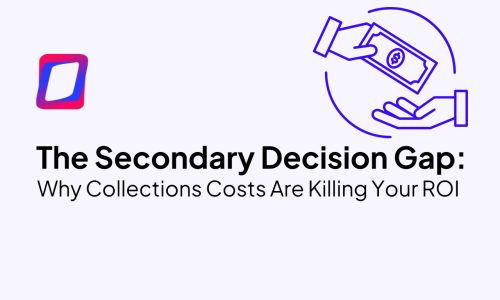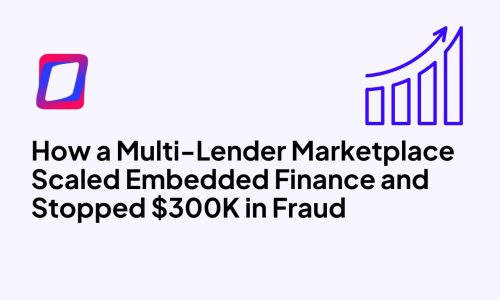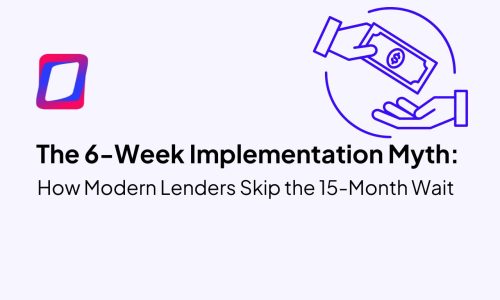Equifax Discusses Financial Wellbeing through Actionable Data: Insights from Fintech Meetup
In the latest Lending Link Podcast episode, recorded at the Fintech Meetup in Las Vegas, host Rich Alterman sits down with Jeff Smith, the Sales Director of Workforce Solutions at Equifax. Together, they dive deep into how payroll API technology is revolutionizing financial services, particularly by improving the way financial institutions verify income and employment.
Rich and Jeff delve into the significant impact of Equifax’s Work Number, highlighting how this innovative solution is transforming outdated and labor-intensive verification methods. With the advent of The Work Number, the process has become automated, allowing consumers to easily share their financial data, which, in turn, speeds up lending decisions and enhances their accuracy.
The conversation also covers the broader implications of the Work Number, demonstrating its versatility across various financial sectors, including auto financing, personal loans, and even extending to account management and collections. This episode sheds light on the profound changes innovative tools like The Work Number are bringing to the financial industry, offering new levels of convenience and trust to consumers everywhere. With The Work Number, consumers can feel confident in the security and reliability of their financial data.
Listen to this engaging episode to understand how Equifax’s advancements, like The Work Number, are shaping a more efficient, inclusive future for financial services tailored to meet the evolving demands of today’s consumers.
Listen to the episode on YouTube
Listen to the episode on Spotify
Explore the Latest Collaborations Between GDS Link and Equifax: Unveiling Innovations in the Financial Industry
- Case Study Highlight: Discover How the Partnership Between GDS Link and Equifax through Ignite is Redefining Industry Benchmarks
- Podcast Insight: Listen to Equifax and Best Egg Delve Into the Advancements of Income Verification Processes in the Lending Sector
- Webinar Replay Available: Watch how GDS Link + Equifax are unveiling the groundbreaking revolution in lending through alternative data and custom decisioning solutions
About Equifax
Equifax is a consumer credit reporting agency headquartered in Atlanta, Georgia, United States. It is one of the three major credit reporting agencies in the U.S., alongside Experian and TransUnion. Equifax collects and aggregates information on over 800 million individual consumers and more than 88 million businesses worldwide. This information includes credit histories, payment histories, and other financial data, which is used by lenders, businesses, and organizations to assess creditworthiness and make informed decisions about extending credit, loans, and other financial services. Equifax also provides identity theft protection and credit monitoring services to consumers.
About GDS Link
GDS Link is a global leader in credit risk management, providing tailored software solutions, analytical and consulting services. Our customer-centric risk management and process automation platforms are designed for the modern lender in their pursuit to capitalize on the entire credit lifecycle.
By providing a personal, consultative approach and leveraging our own industry-leading knowledge and expertise, GDS Link’s solutions and services deliver exceptional value and proven results to thousands of clients around the world.
About The Lending Link Podcast:
The Lending Link Powered by GDS Link is a podcast hosted by Rich Alterman and designed for the modern-day lender. Each episode deeply delves into innovation within the financial services industry and transformation efforts, including AI / ML integration, Modeling, Risk Management Tactics, and redefining Customer Experiences.
GDS Link launched The Lending Link to explore unique strategies for the modern-day lender, dive into the innovative advancements GDS Link and our partners are currently developing and delivering, and gain insights from captivating guests within the FinTech, banking, and credit union worlds.
We have a wide range of guests from various lending institutions and diverse organizations who talk about strategies, technology, and everything in between.
Check Out Our LinkTree to listen to podcast episodes on your preferred platform.
Recent articles

The Secondary Decision Gap: Why Collections Costs Are Killing Your ROI
Read article
How a Multi-Lender Marketplace Scaled Embedded Finance and Stopped $300K in Fraud
Read article





